CP16: Economic assessment of NOcsPS cropping systems and potential analysis of various NOcsPS implementation strategies
Witte et al. (2024) investigated the possibilities of a change in agriculture towards pesticide-free, non-organic production systems in Baden-Württemberg. They analyzed the production and income effects of pesticide-free farming systems based on models. Their model results show that the economic success of pesticide-free cultivation systems essentially depends on the yield effects and the design of subsidy levels and price supplements. In Germany, state support programs within the framework of the EU Eco-Schemes have not yet led to the expected implementation of pesticide-free or NOcsPS cultivation systems (BMEL, 2023). Against this background, a shift in agriculture towards NOcsPS cropping systems requires an in-depth ex-ante analysis to derive the potential of different NOcsPS implementation strategies.
The objectives of our subproject are the economic evaluation of NOcsPS cropping systems and the analysis of the potential of different NOcsPS implementation strategies.
Our hypotheses:
- NOcsPS cultivation systems lead to higher production costs compared to conventional cultivation and lower production costs compared to organic cultivation
- NOcsPS cultivation systems lead to higher labor costs and less labor flexibility than conventional cultivation systems
- Adequate willingness to pay for NOcsPS products enables NOcsPS farming systems to compete with conventional and organic farming systems.
- The competitiveness of NOcsPS cultivation systems varies from region to region
- The design of NOcsPS implementation strategies determines their diffusion in agriculture and on the market
Our work program is divided into four parts:
WP1: Economic evaluation of NOcsPS cultivation systems compared to conventional and organic cultivation systems
Cost-performance accounting will be used to examine the competitiveness of conventional, organic and NOcsPS cropping systems for the two experimental sites in Hohenheim and Dahnsdorf. To this end, inputs and outputs for the individual production processes and crop rotations will be determined on the basis of data from the system trials.
WP2: Determining the regional competitiveness of NOcsPS cropping systems
For a regional comparison of the competitiveness of NOcsPS cropping systems, cost and performance calculations for relevant crops and conventional cropping systems are determined for different regions in Germany (federal states or districts). Statistical data on acreage, yields, prices, natural conditions, and data from various institutions (agricultural authorities, producer organizations, stakeholders) on inputs and outputs of arable production processes are used for this purpose.
In addition, the results of the crop growth models of the plant production system modeling cluster (VP13,14) are used to simulate the yield effects of NOcsPS cropping systems under biotic and abiotic stress, considering climate change for different regions in Germany and for different management methods.
WP3: Analysis of the potential of NOcsPS cultivation systems
For the potential analysis of NOcsPS cropping systems, an optimizing economic-ecological regional model will be developed, in which the results of WP1, WP2 and WP3 will be integrated. By linking this model to a life cycle analysis, regional production, income, labor and environmental effects under different price and policy scenarios for the promotion of NOcsPS cropping systems can be derived
WP4: Development of a transformation concept
The development of different strategies for the implementation of NOcsPS cultivation systems is carried out in cooperation with the cluster market potential and implementation strategies (WP17,18). There are various design and implementation options for a NOcsPS system, with regard to cultivation conditions and policy options. In the context of cross-sectional workshops of the NOcsPS network, different implementation scenarios for a potential analysis are defined.



